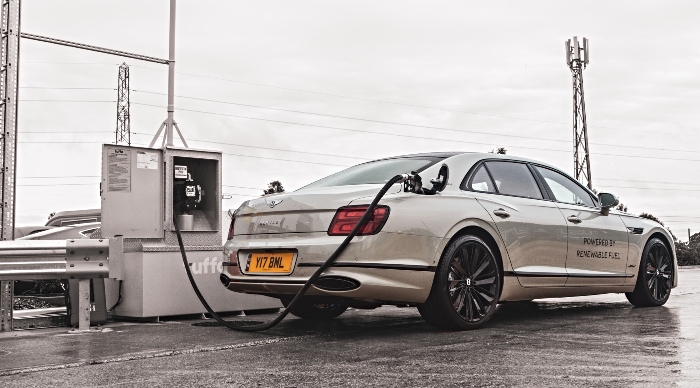
Bentley Motors profits for first six months of 2023 were slightly down on the previous year, results show.
The Crewe-based luxury British marque posted operating profits of €390 million, a 2% drop from €398 million on same period in 2022.
Revenue decreased slightly in 2023, posting €1.681 billion against a 2022 figure of €1.707 billion. Return on sales remained as 23.2% for the first six months of 2023.
Adrian Hallmark, Chairman and CEO of Bentley Motors, said: “The positive results for the first six months are largely a reflection of a consistent order bank amassed over the previous months and years and although our current order run rate is good, it is slightly down on the highs we reached in some of our key markets last year.
“We expect challenging conditions in the second half of the year and so will monitor our supply and stock levels accordingly to ensure our quality of sales is maintained, and adjusted, if we so need as the year continues.”
From the half-year deliveries of 7,096 cars, the best-selling Bentayga luxury SUV claimed 44% of total sales.
The Flying Spur sedan notched 24% and the Continental GT and GTC Grand Tourers recorded 32%.
Meanwhile, the company’s drive to reduce its carbon footprint continues.
It now has a 1200-litre fuel bowser at its Crewe production site which has enabled vehicles from the Bentley Heritage Collection and press fleet to reduce their CO2 impact by 85%.
Bentley ran its six strong fleet at Goodwood using the fuel and successfully completed all 32 hill-climbs.
The second-generation biofuel now installed at Crewe conforms to the global EN228 standard for gasoline, meaning that it’s a straightforward replacement for normal pump fuel.
Any Bentley ever built will run as powerfully and smoothly on the 2nd-generation biofuel as it does on normal pump gasoline, while dramatically reducing its carbon footprint.

Second-generation biofuels use waste products, including agriculture and forestry waste and food industry by-products.
During the production process waste biomass is broken down using fermentation, leading to the creation of ethanol.
Dehydration converts it to ethylene, which can be transformed into gasoline through oligomerisation – chaining short hydrocarbon molecules together to produce longer, more energy-dense ones.
The fuel produced is 100% renewable and delivers an estimated 85% reduction in CO2 impact compared with conventional gasoline.
The 1,200-litre biofuel bowser at Crewe will further reduce the site’s environmental impact.
In 2018, Crewe became the first luxury automotive factory in the UK to be certified carbon neutral by the Carbon Trust, certification that has since been renewed twice.




















Recent Comments